Klonopin Addiction: Signs, Side Effects, & Treatment
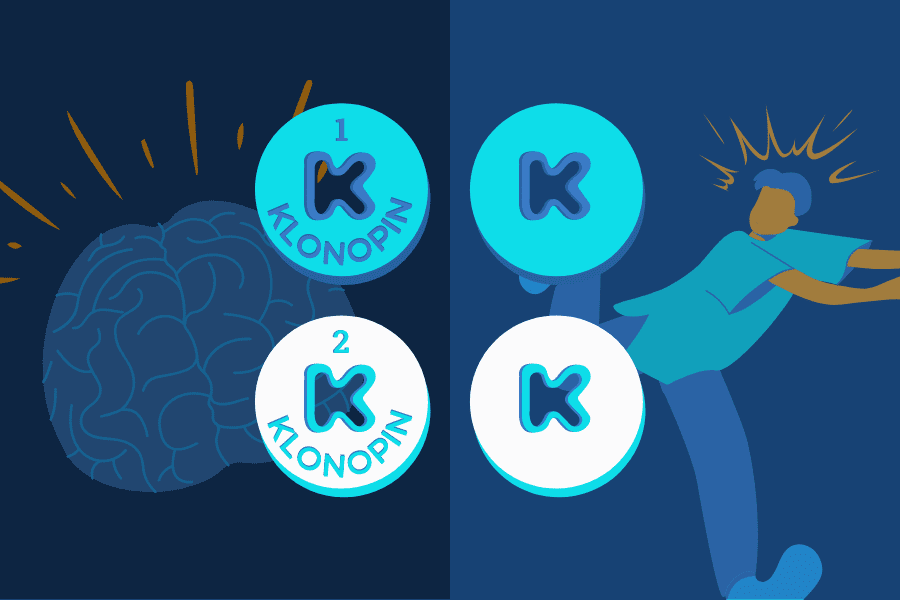

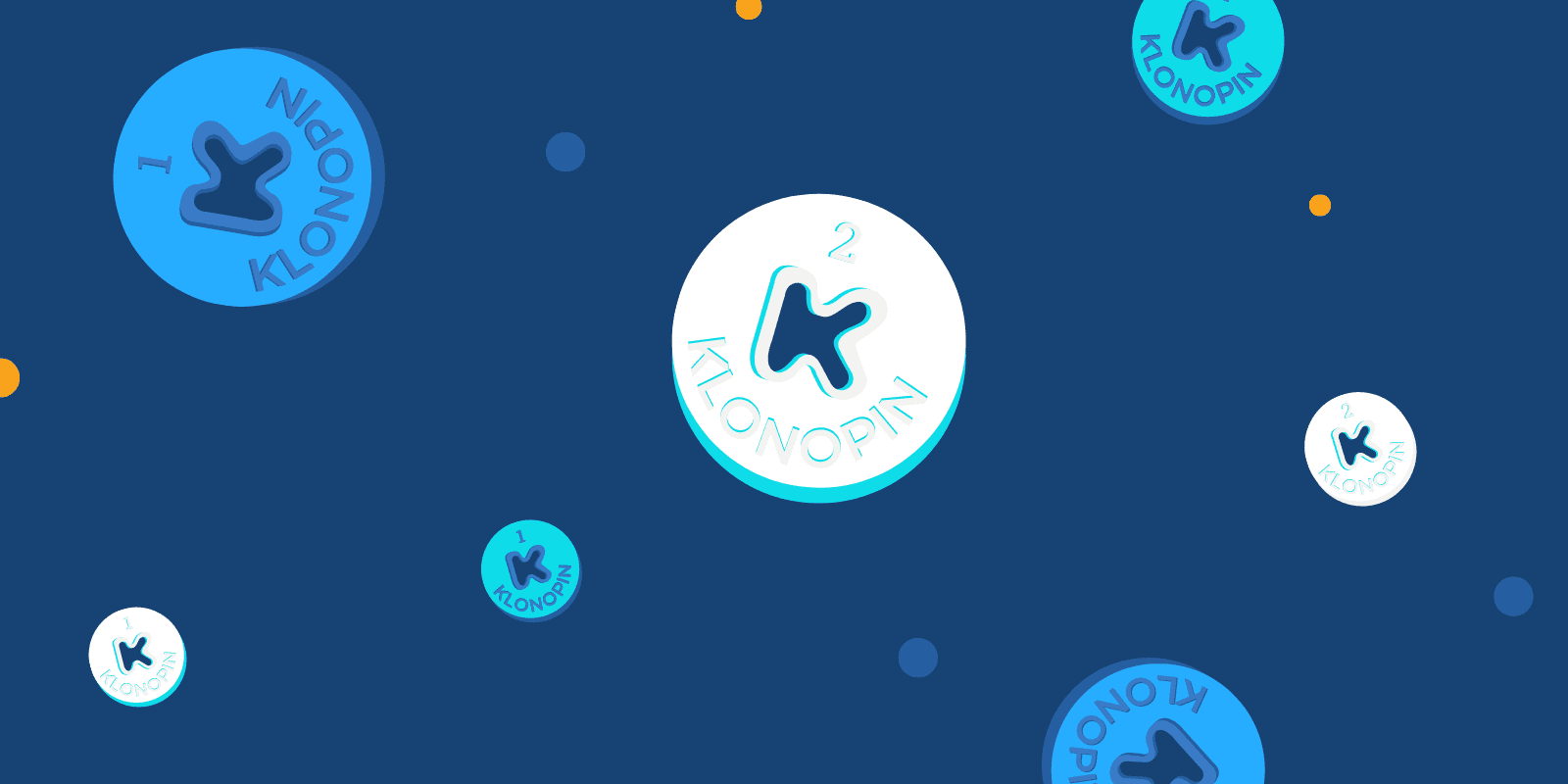
Clonazepam is a benzodiazepine used to treat seizure and panic disorders.
Clonazepam, which also goes by the brand name Klonopin, works by decreasing abnormal electrical activity in the brain, according to MedlinePlus.
While used as a prescription drug to treat panic attacks, seizures, and anxiety, clonazepam can be abused for its sedative effects and become highly addictive.
Klonopin can be habit-forming.
This means that it is capable of causing a psychological or physical dependence that can quickly develop into an addiction.
A person may become addicted to Klonopin in as little as a few weeks of starting the drug.
Prescription drug abuse highly impacts the young adult population.
Young people are especially at risk of developing an addiction because their brains are still going through major development, leaving them more vulnerable.
More specifically, the prefrontal cortex is still developing and plays a role in important functions that involve emotions, impulse control, problem-solving, and risk-taking behaviors.
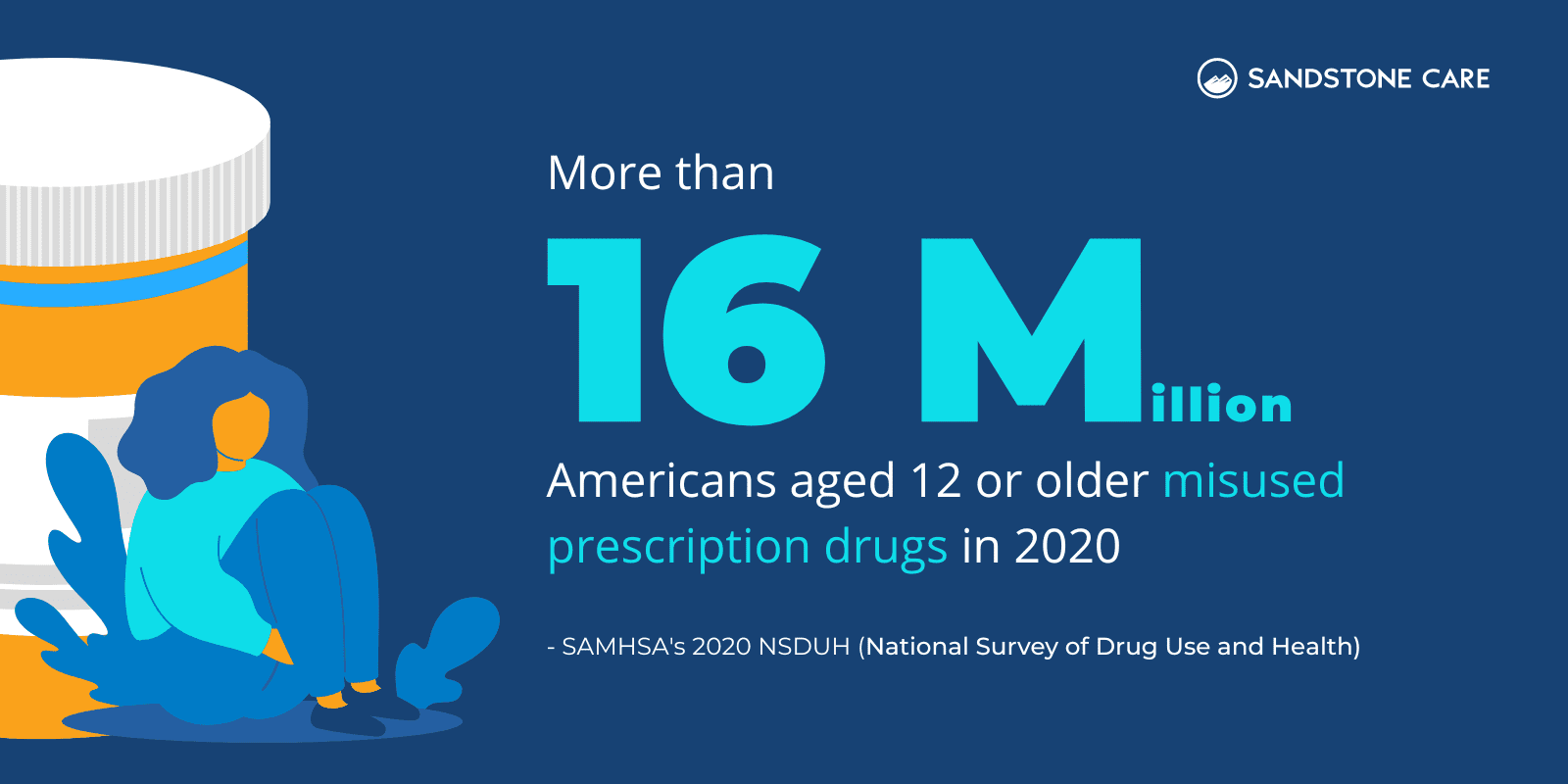
Although Klonopin may be prescribed to treat anxiety, it can worsen it.
A person may experience rebound anxiety, which is characterized by the return of symptoms after you stop taking a medication. These symptoms may also return more intense than they were before you started taking the medication.
Not everyone responds to medication the same, and it is important to seek medical advice if you are experiencing adverse effects.
Klonopin is often compared to Xanax; another benzodiazepine used to treat anxiety and panic disorders.
Other drugs that may be compared to Klonopin can include:
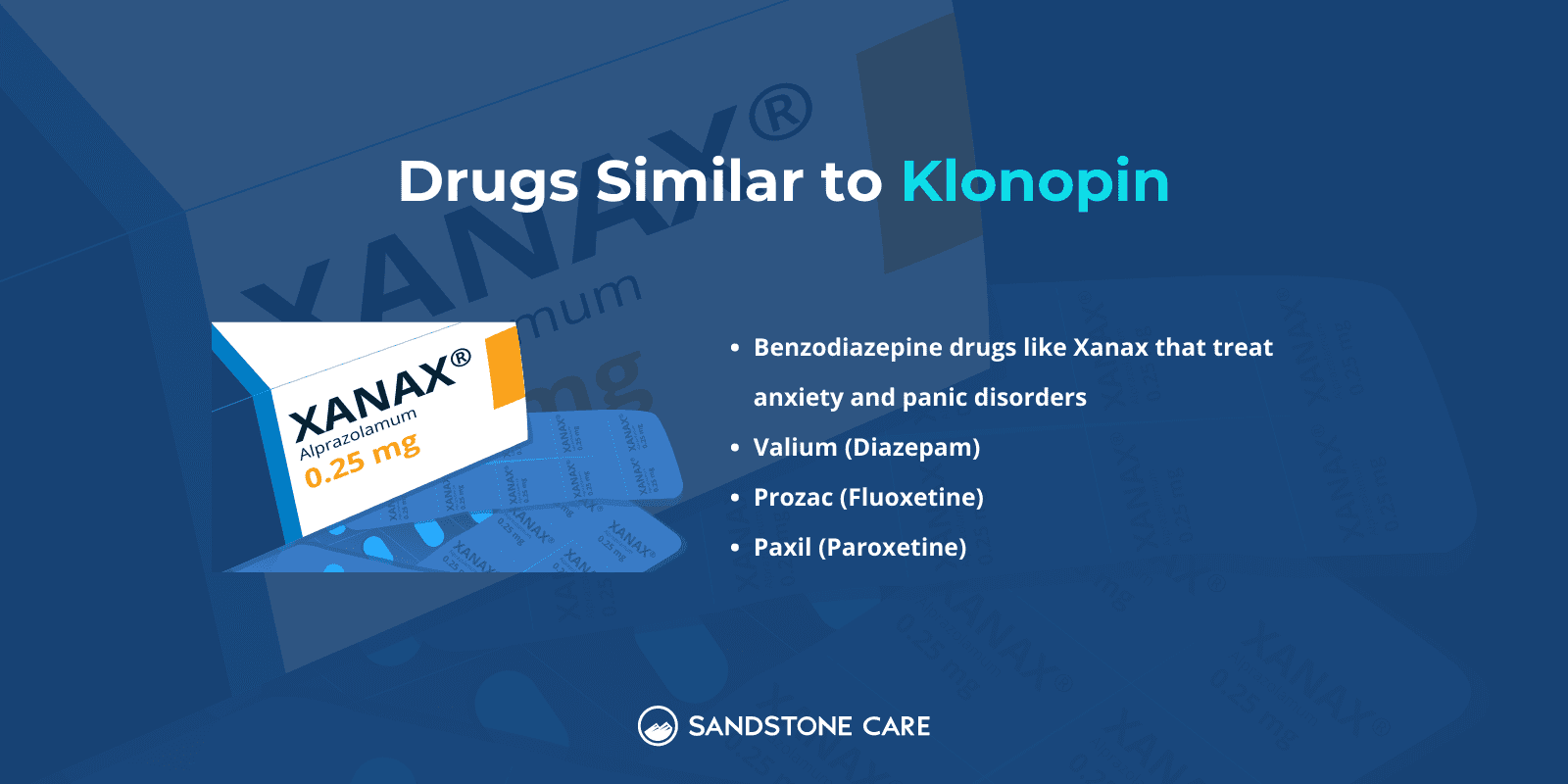
Yes, people may abuse Klonopin for its sedative effects.
Some ways Klonopin is abused include:
The usual dosage of Klonopin depends on various factors, one of the main ones being what it is being used to treat.
Other factors a prescribed dosage of Klonopin may be based on can include an individual’s weight, age, and other medical conditions they may have.
According to the NIH, for adults and adolescents, treatment for seizures with Klonopin should usually start at a dosage of 0.5 mg tablets taken three times a day.
Treatment for panic disorder usually starts at 0.25 mg tablets twice a day.
A healthcare provider may increase the dosage depending on the individual, usually by 0.5 mg.
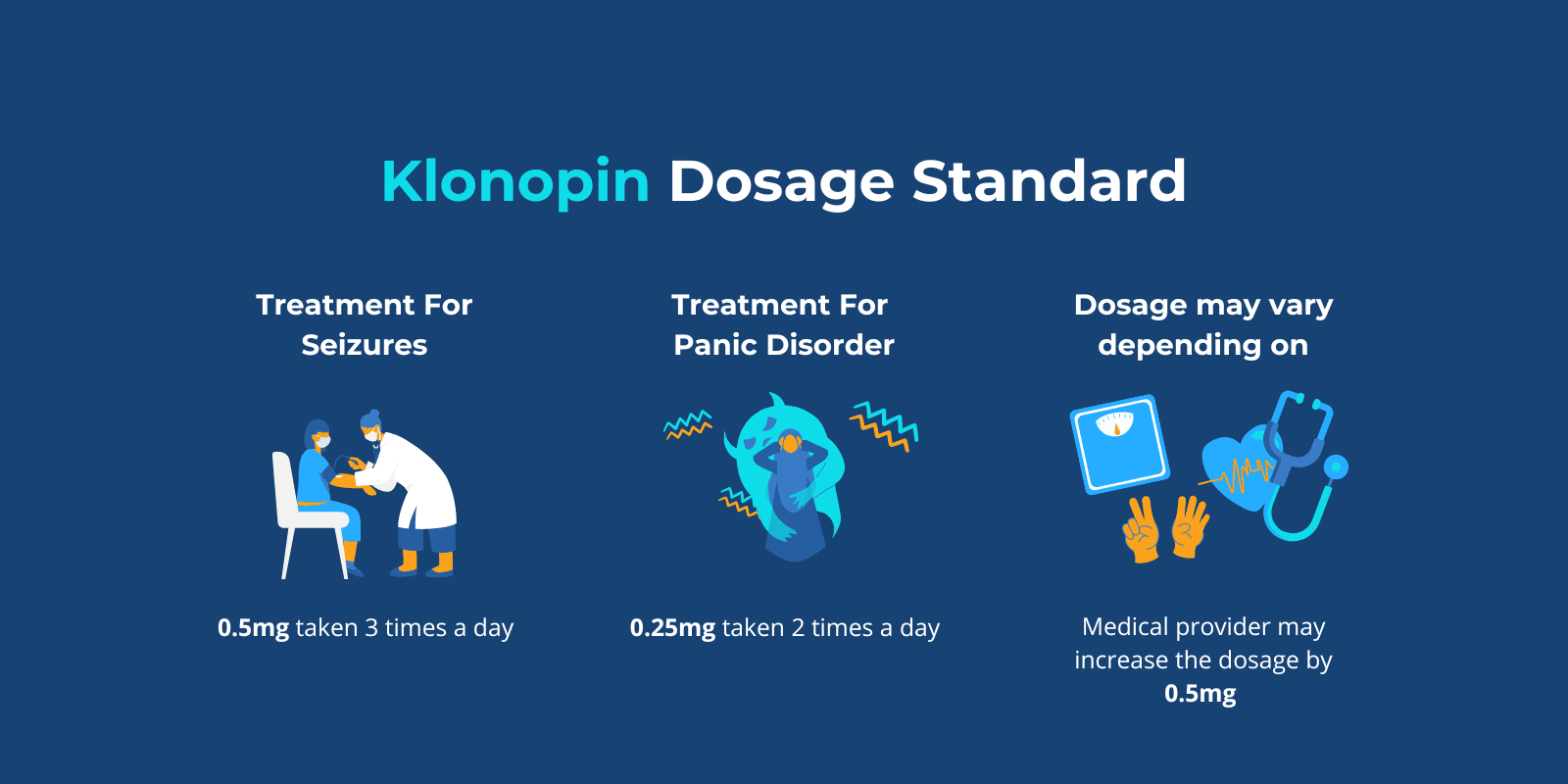
Klonopin is considered a fast-acting medication.
When a person starts using clonazepam for anxiety, they can see improvements within hours.
For others, it may take a few days.
Klonopin is recognized as a Schedule IV drug under the Controlled Substances Act, meaning they are generally considered safe as a prescribed medication.
However, Klonopin is considered one of the most addictive benzodiazepines because of its high potency and long-lasting effects.
Klonopin once a week is not considered a lot, depending on the dose. However, a person can become addicted within a short period of time.
It is important to let your healthcare provider know if you are taking any other medications if you are prescribed clonazepam, as many other drugs may interact with it.
Drug interactions with clonazepam can include:

Mixing clonazepam with other substances can be extremely dangerous. It can cause severe or even life-threatening breathing problems, sedation, or coma.
A person engaging in clonazepam abuse may mix it with other substances to intensify its effects. Doing so can put a person at a higher risk of overdose and, in some cases, can become fatal.
If you believe you or a loved one are experiencing an overdose, call 911 immediately.
It can also be extremely dangerous to mix clonazepam with alcohol. Both substances are central nervous system depressants, and mixing them together can result in sedation, severe respiratory depression, low blood pressure, and in some cases, death.
It is also important to tell your doctor if you have a history that may include the following:
It is also important to let your healthcare provider know if you are pregnant, planning to become pregnant, or are breastfeeding, as clonazepam may harm the fetus.
For older adults over the age of 65, the use of clonazepam may have high risks and should be discussed with a doctor.
It is advised that individuals with compromised respiratory function should take clonazepam with extreme caution as it can significantly increase the risk of respiratory depression.
Additionally, because clonazepam can cause impairment in motor function, individuals are advised not to use heavy machinery, drive, or engage in any activity that requires high motor skills.
Gamma-aminobutyric acid (GABA) is an amino acid that is the primary neurotransmitter for the central nervous system.
Its function is to reduce neuronal excitability. Mental disorders like generalized anxiety disorder and major depressive disorder have been linked to low concentrations of GABA.
Klonopin increases the levels of this brain chemical, which in turn, helps relieve anxiety and stop seizures.
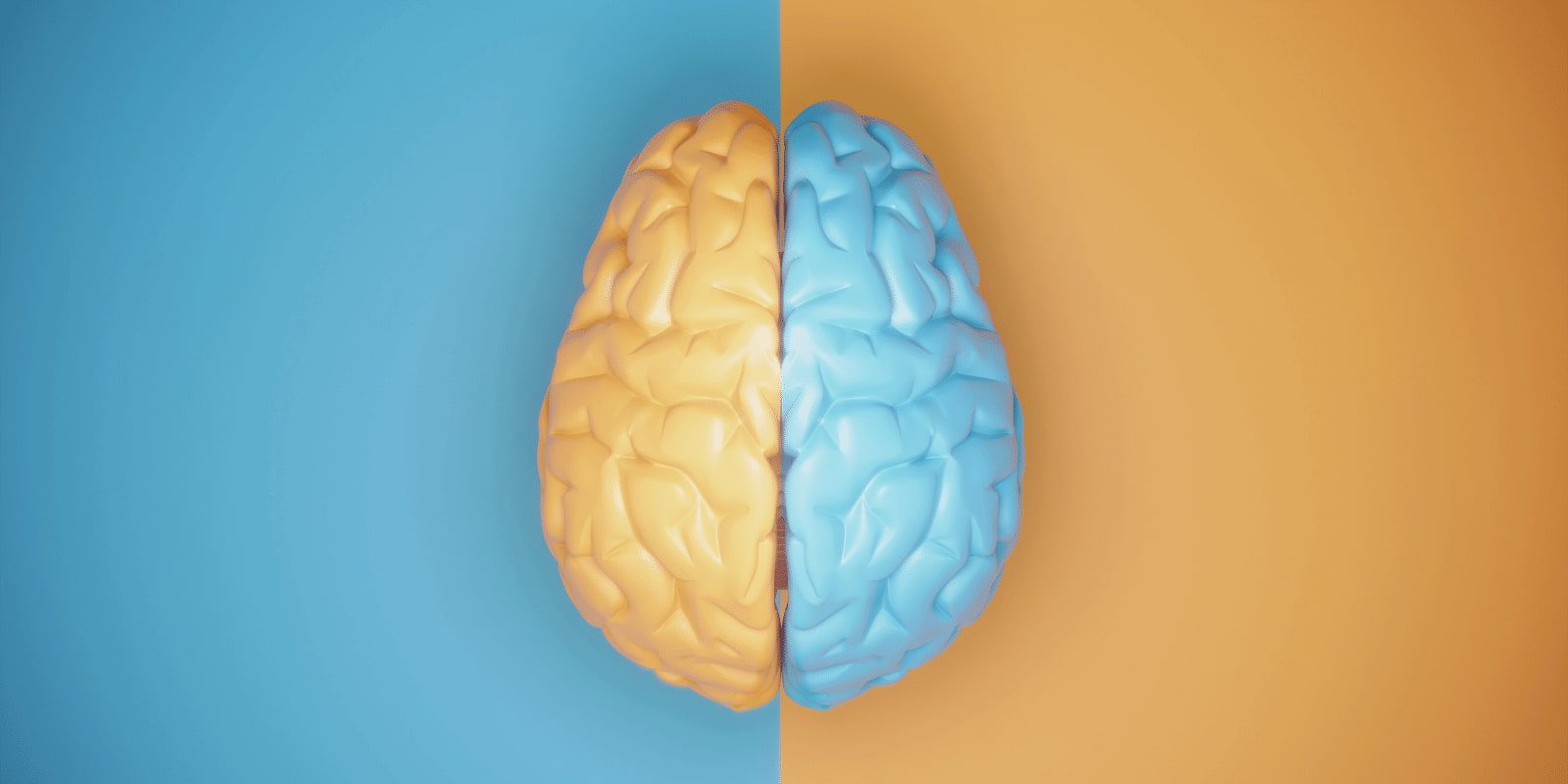
Klonopin may be prescribed to take daily. However, it should not be used for long periods and is usually not longer than two weeks.
Prolonged use of Klonopin can put an individual at risk of numerous adverse effects.
Klonopin may be used as a treatment for anxiety and can help a person by slowing electrical activity in the brain and making them feel more relaxed and calm.
Klonopin is more commonly prescribed to treat panic disorder rather than a generalized anxiety disorder.
Compared to other benzodiazepines like Ativan, Klonopin is more commonly used to treat seizures than anxiety.
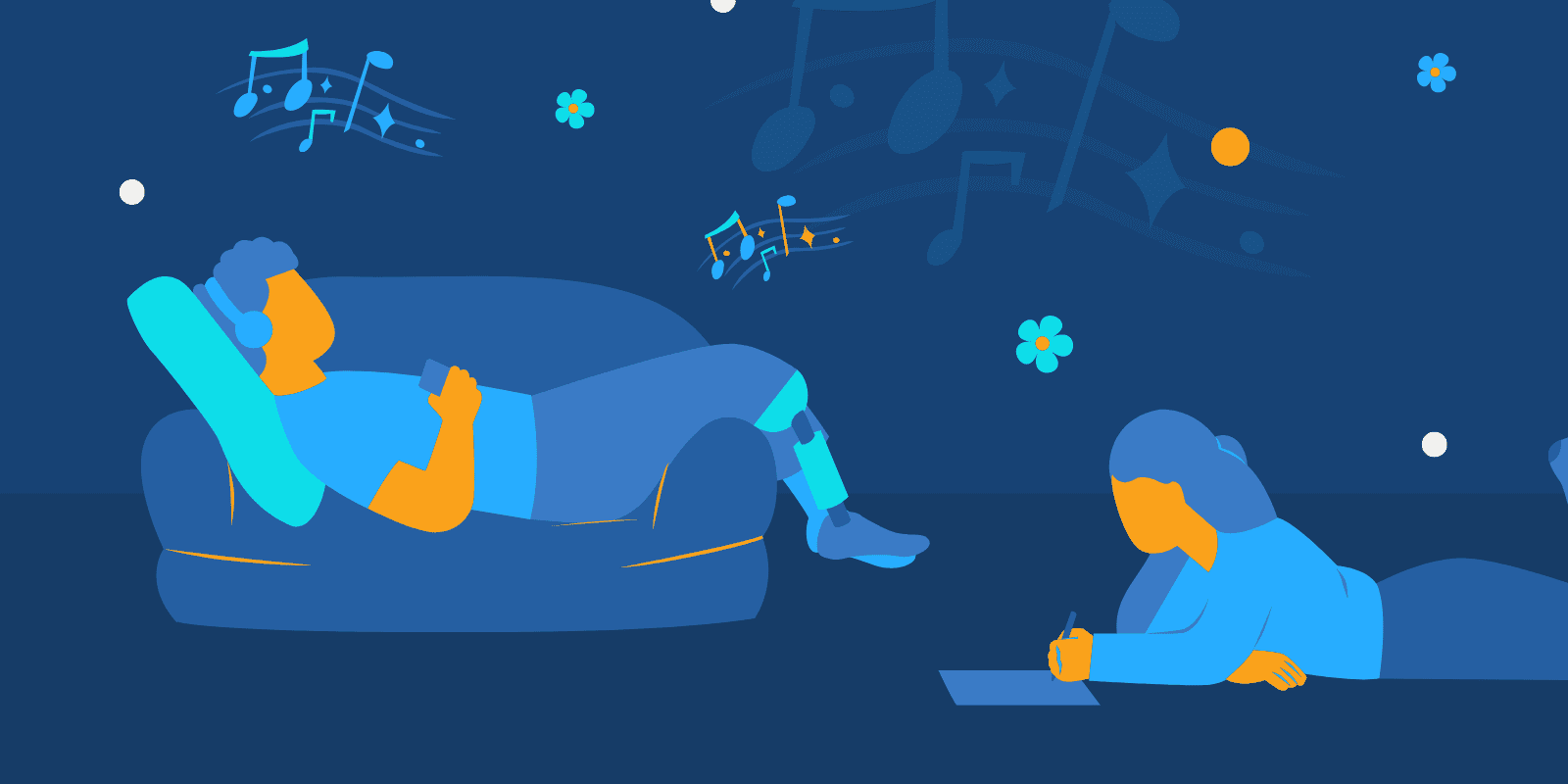
Klonopin can have sedative effects that make a person feel more relaxed.
When people abuse Klonopin, they may use it for this effect and to achieve a sense of a “high.”
According to the Yale Journal of Biology and Medicine, sedatives are widely prescribed for anxiety and insomnia. However, they are abused for their “euphoric” effects, which have dangerous consequences.
Sedative misuse often involves a person self-medicating to cope with the psychological symptoms of a mental disorder. It usually leads a person to increase their doses and ask for early refills.
A common side effect of Klonopin is sleepiness.
However, Klonopin is not approved by the Food and Drug Administration (FDA) to treat sleep disorders.
The effects of Klonopin can last from 8 to 12 hours, meaning a person may sleep through the night while taking Klonopin.
Klonopin also has an off-label use for insomnia and REM sleep behavior disorder.
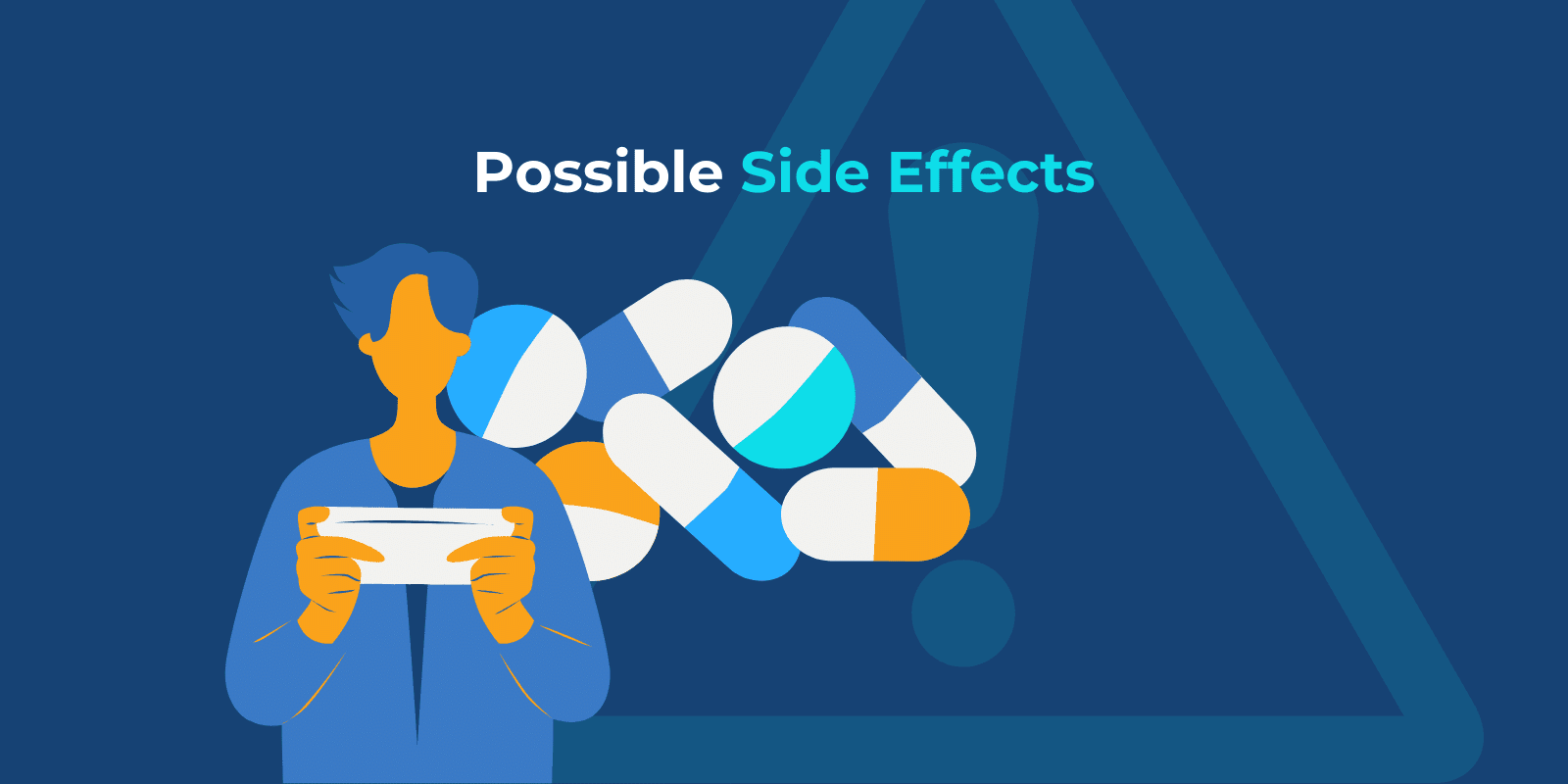
Common side effects of Clonazepam can include:
Other serious side effects of Clonazepam can include:
If you or a loved one are experiencing serious side effects, reach out for help from your doctor immediately or call 911.
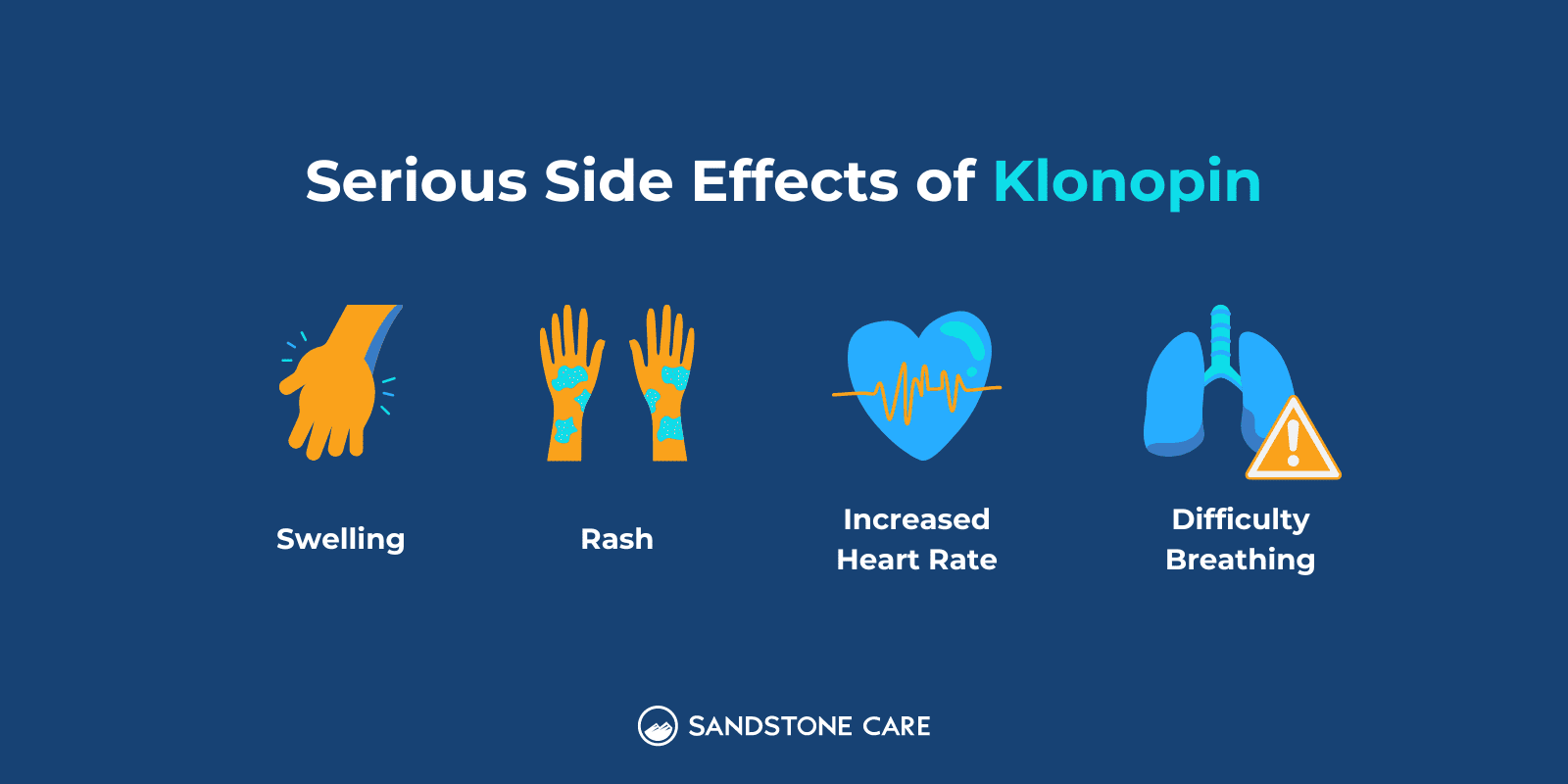
Klonopin is a central nervous system depressant meaning it works by slowing down the central nervous system and brain activity.
In doing so, a person may feel more relaxed and calm. However, they can experience adverse side effects.
Clonazepam can make a person feel relaxed and calm, which can help with the treatment of panic disorders and seizures.
CNS depressants like clonazepam can also make a person feel drowsy.
When a person first starts taking clonazepam, they may feel confused, have trouble thinking, or experience memory problems.
Klonopin increases the levels of the brain chemical GABA in the brain.
This brain chemical reduces neuronal excitability, resulting in relaxation and calming effects.
Mental disorders like depression, anxiety, and schizophrenia have been associated with low levels of GABA in the brain.
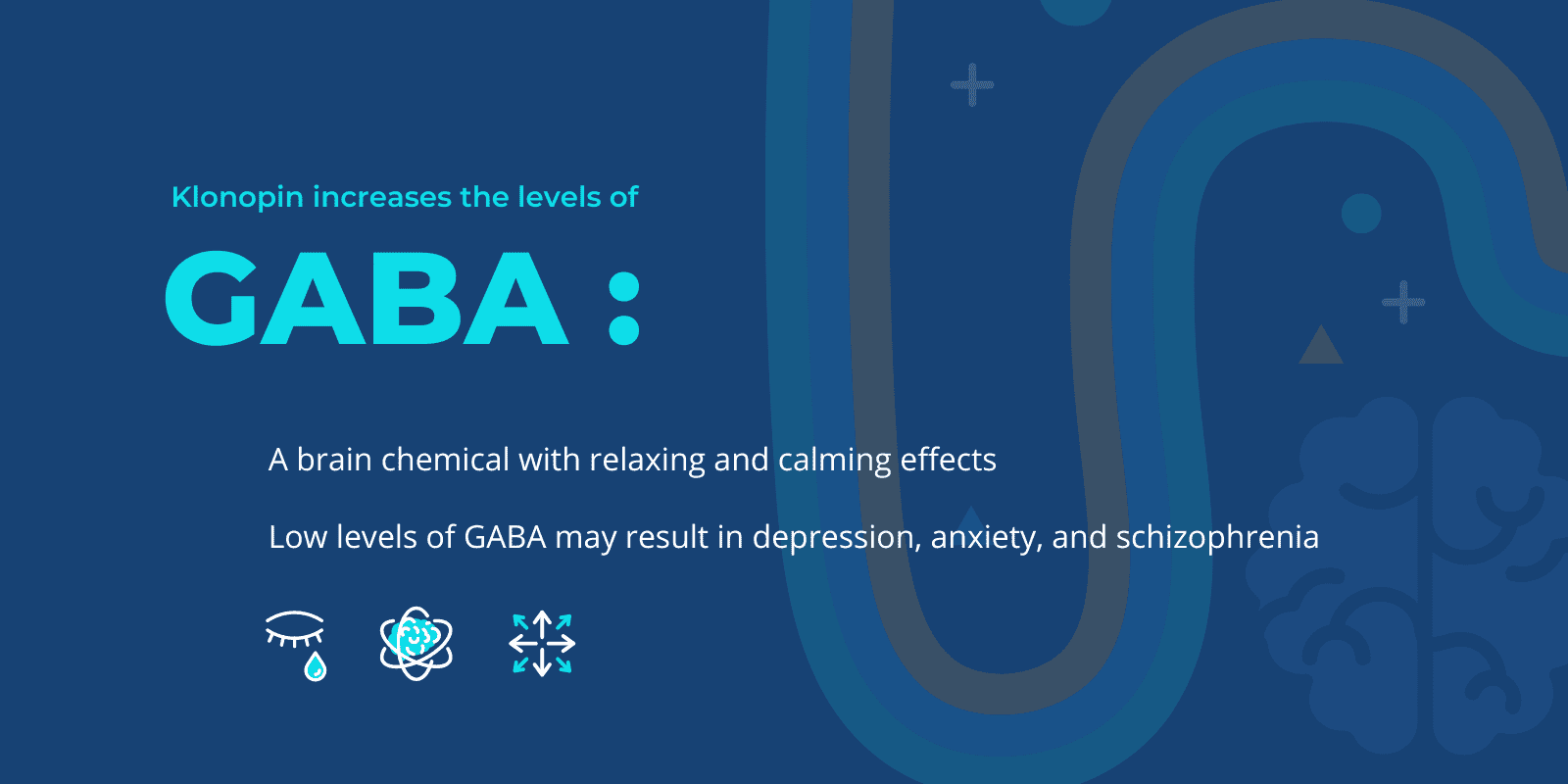
“Rebound anxiety” is a withdrawal symptom associated with benzodiazepine use.
Rebound anxiety can occur when a person stops taking a drug and experiences a return of their previous symptoms, often worse than before.
There is no set timeline for how long rebound anxiety will last; for some, it can be days, and for others, it may be months.
A person who enters treatment with a Klonopin dependence will first undergo detox.
An individual can manage withdrawal symptoms in a safe and controlled environment through a medically-supervised detox.
Depending on how severe a person’s condition is, they may consider inpatient or outpatient treatment.
A residential treatment program can be suitable for individuals who need a high level of support and 24-hour care.
Other treatment options, such as day treatment, still offer a high level of structure and support but allow individuals to still be able to live at home.
Support groups can be a helpful part of an individual’s treatment plan. With support groups, people can learn from one another and relate to others who may share similar experiences.
Addiction often becomes very lonely, and it can be hard to know if anyone would understand what you are going through. With support groups, you have a safe space to go to find support and connections.
Psychotherapies, such as cognitive behavioral therapy (CBT), can also be an effective form of treatment for Klonopin abuse and addiction.
CBT can help an individual understand the connection between unhealthy thoughts and feelings and how they contribute to destructive behaviors.
Like other benzodiazepines, when a person tries to stop taking Klonopin, they may experience withdrawal symptoms that cause discomfort.
Whether a person is prescribed Klonopin or not, they should not just stop taking it abruptly.
If a person wants to get off Klonopin, they should first consult with their doctor or a medical professional.
Klonopin should be tapered, meaning you gradually take it in smaller and smaller doses. This process can help the body and brain better adjust to the changes that occur with a decrease or absence of a drug and can help a person manage symptoms more safely.

Klonopin is not usually prescribed to treat depression. However, some research suggests that it may be useful for treatment-resistant and/or protracted depression.
Klonopin is more commonly used to treat panic attacks and seizures.
In some cases, Klonopin may worsen symptoms of depression or anxiety, especially if a person tries to quit “cold turkey.”
If you or a loved one are experiencing suicidal thoughts, seek immediate help and call 911, or you can call the National Suicide Prevention Lifeline at 988.
Klonopin has relatively long-lasting effects.
The effects of Klonopin can last up to 12 hours.

Klonopin has a long half-life that ranges from 20 to 50 hours.
The half-life of a drug refers to the time it takes for the body to eliminate a single dose by half.
In urine tests, Klonopin may be detectable for around a month after your last dose.
Yes, clonazepam can cause withdrawal symptoms.
Withdrawal symptoms occur when a person abruptly stops or significantly decreases drug use.
These symptoms may include:
If you or a loved one are experiencing clonazepam withdrawal, seek professional help. If you are in imminent danger, call 911.
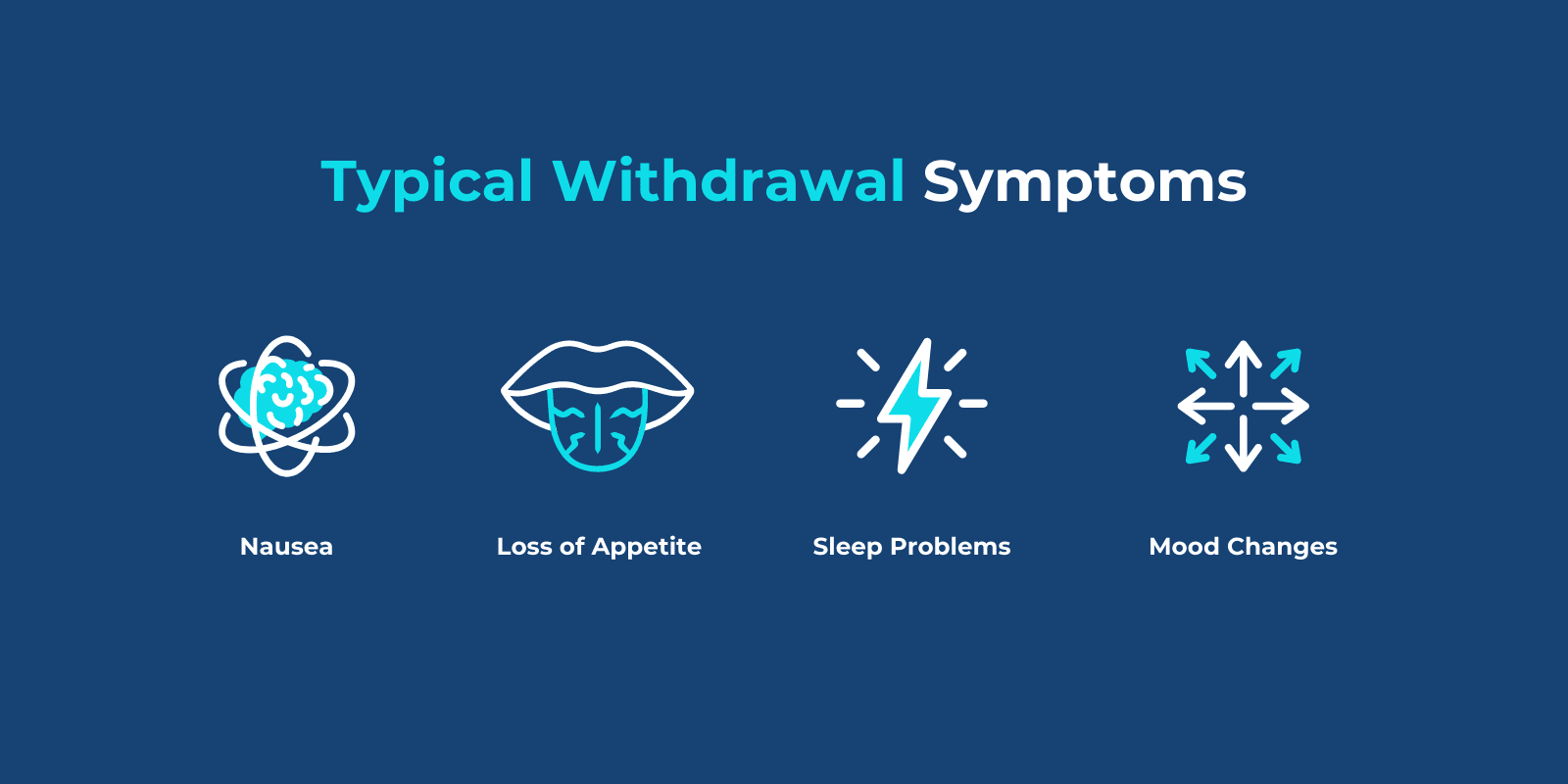
FAQs
Our goal is to provide the most helpful information. Please reach out to us if you have any additional questions. We are here to help in any way we can.
According to Frontiers in Psychiatry, selective serotonin reuptake inhibitors (SSRIs) and SNRIs are the first-line treatment for panic disorder, generalized anxiety disorder, and social anxiety disorder.
Many people also find psychotherapies, like cognitive behavioral therapy (CBT), to be effective in helping manage anxiety symptoms and restructuring negative thought and behavior processes.
The use of benzodiazepines, like Klonopin, is not meant to be long-term.
Klonopin is usually prescribed for short-term treatment and is considered safer when not used for prolonged periods.
0.5 mg of Clonazepam is generally considered a normal dose of clonazepam. However, people who have been prescribed this dose of clonazepam can still become addicted.
A person may be more likely to develop an addiction to clonazepam the longer they take it, which is one of the reasons why it is typically only prescribed for a short period of time.
Clonazepam has a high potency and long-lasting effects, making it one of the strongest benzodiazepines.
Other high-potency benzos include Xanax and Ativan. However, they are short-acting.
Both Xanax and Klonopin are benzodiazepines that may help relieve anxiety symptoms.
However, they are not the same.
For one, Klonopin’s effects last longer than Xanax. A person taking Klonopin usually doesn’t need to take it as frequently daily as they would have to with Xanax.
Additionally, Klonopin is usually prescribed to treat panic disorders and seizures, not a generalized anxiety disorder. Xanax, or alprazolam, is more commonly prescribed for anxiety disorders.
A 0.5 mg dosage of three times a day, of Klonopin is usually the normal dosage for adults and adolescents when used to treat seizures.
The effects of clonazepam can last from 8 to 12 hours, which is why it is usually prescribed around 2 to 3 times a day.
Klonopin is considered a long-lasting benzodiazepine.
The maximum recommended daily dosage of Klonopin is 20 mg.
No, Ativan and Klonopin are not the same.
Ativan, or lorazepam, is another benzodiazepine that is used to treat anxiety disorders and seizures. Although lorazepam is more commonly prescribed to treat anxiety.
They are both high-potency and not intended for long-term use. However, Ativan is short-acting, whereas Klonopin is long-acting.


Klonopin (clonazepam) is a benzodiazepine used to treat panic attack and seizures that can become highly addictive when abused. Sandstone Care is here to support teens and young adults with mental health and substance use disorders.